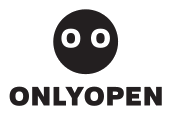
In the contemporary computerized world, the free and open-source software performs the same role as freedom of opinion and freedom of speech in the self-determination of man. It is carrying this mission out by providing access to the source code, the right to analyse and modify this code, as well as the right to distribute it freely, with or without modifications. In this context, the world ‘”free” is related not so much to the lack of fees, as to the freedom, which should be the prerogative of every man. So while the movement of the “open” software is related only to the technical aspect, its efficiency and security, the “free” software movement points to the axiological aspect, which translates into other ethical and social values. Hackers developing free software indicate the social harmfulness of the unfree software and allow users to get rid of it and use the free alternatives. There is, however, an important distinction: the android system, for example, which is based mostly on open-source software, is not free, because it does not allow the user to install modified versions of most programmes it contains, and only one company has the right to do it.
Using free software provides many advantages in the world of culture and education. In the contemporary world, it is not enough to know how to operate, for example, a certain office software. It is far better to understand issues related to this software, and as a result to choose a solution which meets our demands and at the same time respects the right to freedom. A similar mechanism applies to image processing and other areas in which the computer is nowadays an indispensable tool.
The independence provided by free software gives us advantage over the unfree one, as it does not force us to pay fees to corporations which use more and more elaborate methods of licensing, e.g. “Software as a Service”. Freedom of choice allows us to learn wisely and share knowledge without limitations. A good example here is easy access to many language versions available for most programmes, which is not possible in the unfree versions of software. Using free software at home, at school and at work, you can avoid vendor locking and freely use open standards which allow you to share the results of your work without limitations, in this way broadening the scope of culture.
The money which is spent on the unfree software can be redirected to people, to improve their qualifications. Using free software is also ecological, as from the technical point of view it operates also on older equipment and as a result does not force us to update it too often – which the closed systems often demand us to do. In practice, it means that an old sound card, video card and other, which stopped working when the operating system was updated to a new one, will still work in a computer with GNU/Linux! The source of the negative opinions is mainly repeated gossip unconfirmed by experience, and the myths about the non-functionality of such systems as GNU/Linux, Gimp, Krita, Libre Office or Blender are easily clarified by the users of those applications. Many communities involved in their development and numerous conferences of their supporters prove the argumentation and growing popularity of the freedom movements. Our prejudice against free software and free solutions should be put under close scrutiny, similarly as we analyse the ingredients of the food we give to a child.
On the cellular level, organisms have evolved not by competitive elim ination, but by cooperation between each other, which allowed for the appearance of complex organic forms. Using free software opens the way for solidarity and cooperation with people from around the world, who search for solutions to similar problems. It is easy to find somebody who will advise you a solution or will simply help you solve your problem. This idea is inherent in the organic actions of the movement for free software.
The operations of the consumer market are based on the lack of awareness of a typical consumer, who is constantly confirmed in their belief that you have to pay dearly to receive a good product. An aware prosumer chooses the solution matching his needs, which is usually within an average price range. No one questions the fact that unfree licenses are paid, just as no one undermines the fact that the sky is blue. But in reality, there are many equally functional solutions based on free licenses.
The issue of free software is related to values, not price. It allows for equality by the possibility to share with others. Using free software, open standards and reserving some copyrights via creative commons we make way for free and harmonious development, respecting human rights and the ecosystem. The result of this process is the development of new models of functioning and finding solutions for real problems by developing universally available tools and free access to code and documentation.
Ultimately, choosing freedom and awareness is an individual matter and we should remember that our decisions influence the shape of reality.
Jakub Machałek / happy hacking
How to deal with media, Cyber Academy - CC BY-SA 3.0
